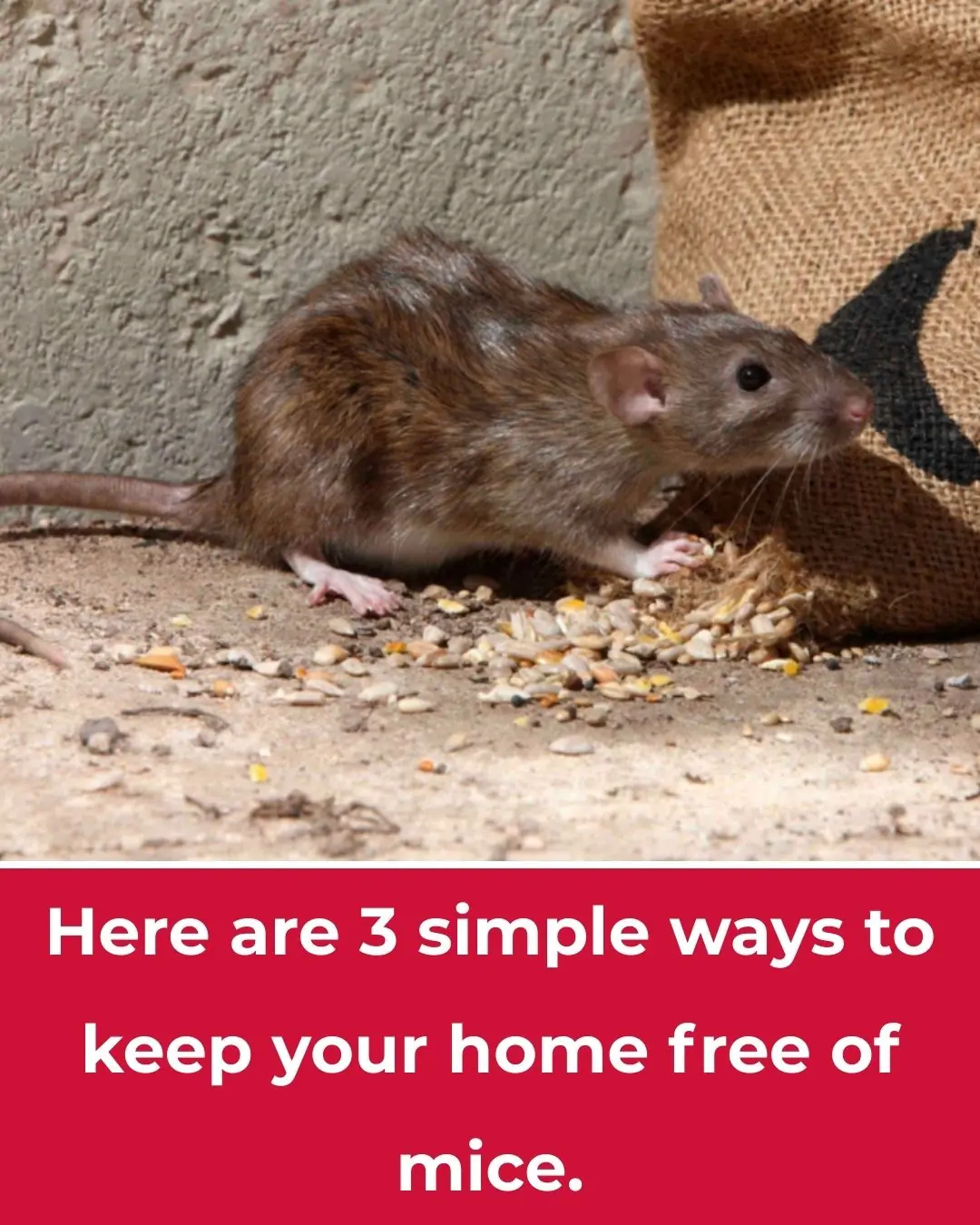
3 ways to prevent snakes from crawling into the house, everyone needs to know to protect their family

How to Keep Snakes Away from Your Home: Practical Tips You Should Know
Snakes generally have poor eyesight but an extremely sensitive sense of smell. As legless reptiles, they move with surprising speed and can sometimes find their way into human living areas in search of food or shelter. For many people, the idea of a snake entering the home is a frightening nightmare.
Why Snakes Enter Houses
Homes with gardens, dense vegetation, or large yards are ideal hiding and nesting spots for snakes. Depending on the species, some snakes are venomous while others are not, but regardless, they can pose risks and create panic for residents.
During hot and dry weather, snakes are even more likely to seek cool, shaded places inside houses where food and water are available. Homes with an abundance of rodents, poultry, or small pets are especially attractive to snakes, since these animals are their natural prey.
In addition, houses with jasmine, night-blooming jasmine, or certain fragrant plants often attract birds and mice, which unintentionally lure snakes looking for their next meal.
Simple and Effective Ways to Repel Snakes
1. Plant Snake-Repelling Trees and Herbs
One of the most natural and environmentally friendly methods is to plant specific plants that snakes dislike. Some species that are considered natural “snake repellents” include garlic vine (Mansoa alliacea), wild garlic (Allium ascalonicum), and kudzu vine. These plants emit a strong, pungent fragrance that snakes tend to avoid.
Lemongrass is also a popular option. Its citrus-like scent is not only a natural enemy of mosquitoes and flies but is also unpleasant to snakes. You can grow lemongrass bushes along fences, near entrances, or in corners where snakes may crawl into the house. Another folk method is to crush lemongrass stalks and hang them at doorways as a barrier.
Planting garlic vines around your property is also a widely shared tip in traditional households. Besides repelling snakes, these plants beautify your home and create a fresher environment.
Note: While plants can help deter snakes, they are not a 100% foolproof solution. Homeowners should still remain cautious, keep their surroundings tidy, and avoid giving snakes places to hide.
2. Use Realgar Powder (Arsenic Sulfide)
Realgar powder is a yellow mineral compound with a strong odor that snakes find highly repulsive. Sprinkling this powder around the perimeter of your house, near entrances, or in gardens can prevent snakes from coming close.
However, realgar is toxic to humans and animals. If you choose this method, always wear protective gloves and a mask while handling the powder. Be extremely careful not to let it contaminate food, water, or areas where pets roam. After use, clean up thoroughly to ensure safety for your family and domestic animals.
3. Keep Dogs or Cats at Home
Snakes are naturally cautious of dogs and cats. The presence of these pets can discourage snakes from approaching. Dogs and cats also hunt small rodents, lizards, and birds—reducing the food supply that might otherwise attract snakes.
In addition, both animals have sharp senses of hearing and smell, often detecting unusual activity before humans do. If a snake enters, they can alert the household quickly, giving you time to act.
Additional Safety Measures
-
Maintain Cleanliness: Regularly clean and organize your home. Avoid leaving clutter, piles of wood, or debris where snakes might hide.
-
Clear Vegetation: Trim trees, cut grass, and keep gardens tidy to prevent snakes from making nests.
-
Seal Entry Points: Inspect and seal holes, cracks, or gaps around doors, windows, and foundations. Even small spaces can provide entry for snakes.
-
Eliminate Food Sources: Reduce rodent populations around your property by using traps or safe repellents. Without prey, snakes have little reason to enter.
What to Do If You Encounter a Snake
If a snake enters your home, remain calm. Do not attempt to catch it with bare hands. Instead, keep a safe distance and contact local animal control or experienced snake catchers.
In case of a snake bite, seek immediate medical attention at the nearest hospital. Do not attempt to treat the wound with folk remedies, cutting, or sucking the venom—these methods are dangerous and can worsen the situation.
✅ By combining preventive measures such as planting natural repellents, maintaining cleanliness, and keeping pets, you can significantly reduce the chance of snakes invading your home. With awareness and preparation, your household will remain safer and more comfortable.
News in the same category


Turn Back the Clock: The Cheap Sour Starfruit & Potato Remedy That Restores Black Hair Naturally
Struggling with premature gray hair in your 20s or already noticing streaks of silver in your 30s and 40s? Don’t panic. While gray strands can feel like a dreaded sign of aging, nature offers surprising, inexpensive solutions that can help you regain yo

Put a Bowl of Salt in the Fridge: The Genius Trick I Regret Not Knowing for 30 Years
A single bowl of salt might seem insignificant, but its impact on your fridge — and your household — is anything but small.

3 Dangerous Mistakes People Make With Plastic Wrap—And How They Could Secretly Harm Your Health
Plastic wrap is undeniably convenient, but it must be used correctly. Missteps like reusing, heating, or buying low-quality products can gradually harm your body.

How to cook perilla leaf water to cool the liver and brighten skin every day

Don't soak frozen meat in water. Listen to the chef's instructions on how to defrost it in 5 minutes and the meat will still be delicious.

Putting Meat Straight into the Freezer Is a Mistake: Butcher Shares Tips to Keep Meat Fresh for ‘a Whole Year’ Without Spoiling

Mixing Beer with Sugar or Laundry Detergent: A Brilliant Solution for a Common Household Problem You Didn’t Know About

Is Keeping Doors Closed While Using Air Conditioning Really Correct?

Don’t Throw Away Damaged Tomatoes

If the freezer in your fridge is covered with ice, do this right away to avoid a surge in your electricity bill.

Don't boil chicken with salt and plain water, as it may become smelly and red. Try this method instead: the chicken will have golden skin and tender, flavorful meat.

3 ways to prevent snakes from entering your house, everyone should know to protect their family.

Homemade Vitamin C Serum | DIY Vitamin C Serum for Clear Skin

Say Goodbye to Bad Breath With Just 2 Natural Ingredients: DIY Clove & Peppermint Mouthwash

Boil sweet potatoes, don't just add water

Why do old people often have many spots on their bodies?

Medicinal uses of the plant
News Post

Tiny Brown Balls in Your Salad

Here are 3 simple ways to keep your home free of mice.

A Man Held His Breath Underwater for 29 Minutes, Shattering the World Record and Even Surpassing Most Marine Mammals

Everywhere Cannabis Could Be Legalised in US as Trump Considers Major Law Change

4 Types of Electric Kettles That Could Be Harming Your Health – Check Yours Before It’s Too Late
Electric kettles are found in nearly every modern home, making it quick and easy to boil water for tea, coffee, or instant meals. But shocking warnings from health experts reveal that some kettles may release dangerous substances into the water you drink

Turn Back the Clock: The Cheap Sour Starfruit & Potato Remedy That Restores Black Hair Naturally
Struggling with premature gray hair in your 20s or already noticing streaks of silver in your 30s and 40s? Don’t panic. While gray strands can feel like a dreaded sign of aging, nature offers surprising, inexpensive solutions that can help you regain yo

7 Resistance Band Ab Moves That Torch Belly Fat and Build Core Power
This variation transforms a simple bridge into a powerhouse move, strengthening not only your glutes but also your deep core muscles, lower back, and hip stabilizers.

8 Superfoods That Naturally Lower Cholesterol and Protect Your Heart
It’s about making gradual, sustainable swaps—cutting back on processed foods, replacing saturated fats with healthier ones, and prioritizing fiber-rich, nutrient-dense ingredients.

Flaxseed Gel: The Natural “Botox in a Jar” That Smooths Wrinkles and Restores Youthful Glow
With flaxseed gel, you’re not just applying moisture—you’re giving your skin the building blocks it needs to repair, renew, and glow from within.

Toothpaste and Lime for Hair Removal: The Surprising DIY Remedy That Could Replace Laser Treatments
With just two simple household ingredients, you can try a gentle, budget-friendly, and surprisingly effective solution at home.

Cabbage Leaves Wrapped Around Your Legs: A Simple Remedy With Surprising Benefits
Packed with anti-inflammatory, detoxifying, and soothing properties, cabbage is more than just a kitchen staple — it’s a hidden healing ally.

10 Life Saving Tips for Lowering Stroke Risk & Early Signs of Stroke

Put a Bowl of Salt in the Fridge: The Genius Trick I Regret Not Knowing for 30 Years
A single bowl of salt might seem insignificant, but its impact on your fridge — and your household — is anything but small.

Proven Health Benefits of Eating Eggs Based on Evidence

Should You Peel Ginger Before Eating? The Shocking Truth Everyone Needs to Know
he peel is not harmful; in fact, it carries unique benefits. By using ginger correctly and storing it properly, you can unlock its full potential for boosting immunity, improving circulation, and keeping your

80% of Heart Attacks Can Be Prevented—Just Do These 5 Easy Things

3 Dangerous Mistakes People Make With Plastic Wrap—And How They Could Secretly Harm Your Health
Plastic wrap is undeniably convenient, but it must be used correctly. Missteps like reusing, heating, or buying low-quality products can gradually harm your body.

52-Year-Old Man Dies From Diabetes—Doctors Reveal 4 Common Breakfast Mistakes That Can Wreck Your Blood Sugar
He thought he was strong and healthy, but one morning at work, his body gave in without warning. By the time he reached the hospital, it was too late. His story serves as a chilling reminder that what you eat for breakfast could quietly determine your ris

4 Silent Eye Changes That Could Signal Hidden Cancer — Don’t Ignore These Red Flags
Your eyes do more than reflect emotions; they can also reveal critical clues about your overall health. Subtle changes in appearance, color, or vision may sometimes be early warning signs of dangerous cancers developing elsewhere in the body — long befo